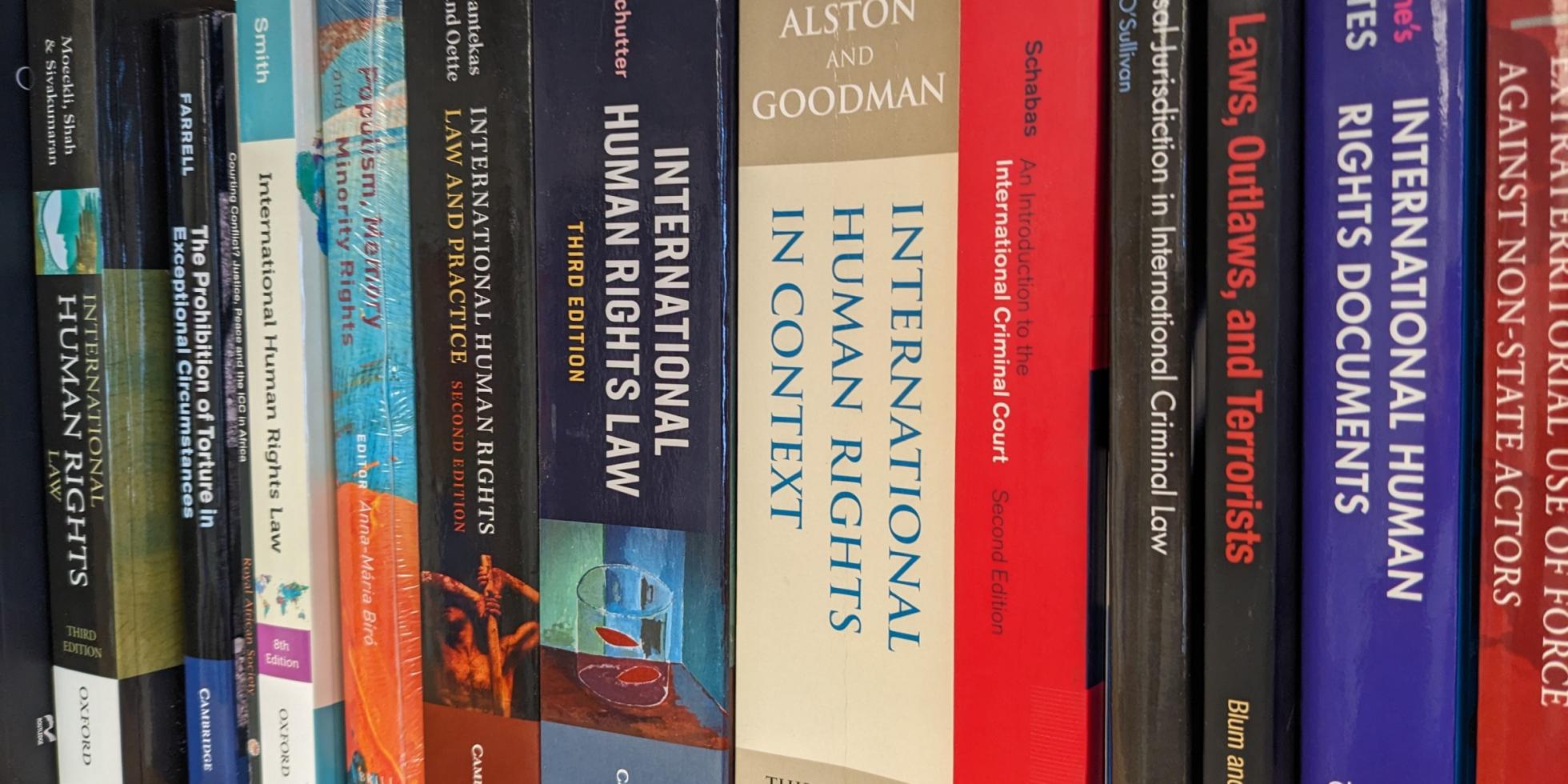The virtual human rights library brings together resources from multiple libraries and information services, both internal and external, to create an online hub dedicated to the study of human rights. This curation is unique in its interdisciplinary concerns and focuses on writings and research from social sciences, humanities, and law.
The virtual library is continually updated with the latest academic research in issue areas, as well as with relevant films, recorded conversations, and other forms of media.
Please Note:
The Virtual Library is usable by all visitors, but the hyperlinks to materials listed are for UChicago community members with a CNet ID and password.
Please direct feedback and suggestions to Kathleen Cavanaugh.
For technical assistance, email pozenhumanrights @ uchicago.edu.
Searchable Database
Click into the dropdowns to select the disciplines, keywords, and media type for your search, and then hit "Apply."
"Human Rights in the Fourth Decade of the HIV/AIDS Response: An Aspiring Legacy and Urgent Imperative"
More than 35 years since the HIV/AIDS pandemic began, HIV continues to cause almost two million new infections each year, and the “end of AIDS” by 2030 remains elusive.1 Violations of human rights continue to fuel high rates of new...
"Human Rights INGOs, LGBT INGOs, and LGBT Policy Diffusion, 1991–2015."
Since the late 1990s, a growing body of literature has researched the cross-national diffusion of policies that affect lesbian, gay, bisexual, and transgender (LGBT) communities. Studies stemming from world society consider how state ties to newly emergent global norms regarding...
"Human Rights: What the United States Might Learn from the Rest of the World and, Yes, from American Sociology."
The U.S. Constitution includes civil and political rights—as individual rights—but does not include what is internationally understood to be “human rights,” namely rights we enjoy as equals, including economic, social, and cultural rights, and protections for vulnerable persons, such as...
"Human Trafficking: Globalization, Exploitation, and Transnational Sociology."
In the last decade, human trafficking has emerged as a new area of research for sociologists and other scholars across a wide range of fields. Globalization has exacerbated the illicit trade of people and their parts within and across territorial...
"Humanitarian aid beyond 'bare survival': Social movement responses to xenophobic violence in South Africa"
In this article, I investigate responses to the humanitarian crisis that emerged following the May 2008 xenophobic violence against South African nonnationals that resulted in 62 deaths and the displacement of well over 30,000 people. I focus specifically on how...
"Humanity without Feathers"
Festa explores the appeal to humanity (especially to suffering humanity in sentimental mode) in the eighteenth century and in antislavery literature, suggesting that the paradoxes that continue to haunt it are rooted in the theories and practices of its inception.
"Identity in Mashpee,"
The Predicament of Culture is a critical ethnography of the West in its changing relations with other societies. Analyzing cultural practices such as anthropology, travel writing, collecting, and museum displays of tribal art, James Clifford shows authoritative accounts of other...
"Immigrant Rights Are Human Rights: The Reframing of Immigrant Entitlement and Welfare."
The racial and gendered politics of the 1996 welfare reform movement incorporated an anti-immigrant stance that fundamentally altered non-citizens' access to public benefits. This article focuses on community mobilization efforts to reframe the discourse of the “immigrant welfare problem” in...
"Incorporation: Governing Gendered Violence in a State of Disempowerment."
Gender and legal scholars argue that law enforcement personnel govern gendered violence by selectively protecting “good victims” and imposing social control. This article shows why these theories are not universally applicable. Using 26 months of participant observation and interview data...
"Infrastructures of empire: towards a critical geopolitics of media and information studies"
The Arab Uprisings of 2011 can be seen as a turning point for media and information studies scholars, many of whom newly discovered the region as a site for theories of digital media and social transformation. This work has argued...

